So, we’ve got this group of Early Church Fathers, and they’re kind of like the unsung heroes of Christianity. After the whole Jesus era, Christianity didn’t just become an instant hit. Nope, it had to marinate and evolve over time. And guess who were the masterminds behind this evolution? You got it, the Early Church Fathers!
Now, let’s get to know these folks a bit better and see what they brought to the Christian potluck:
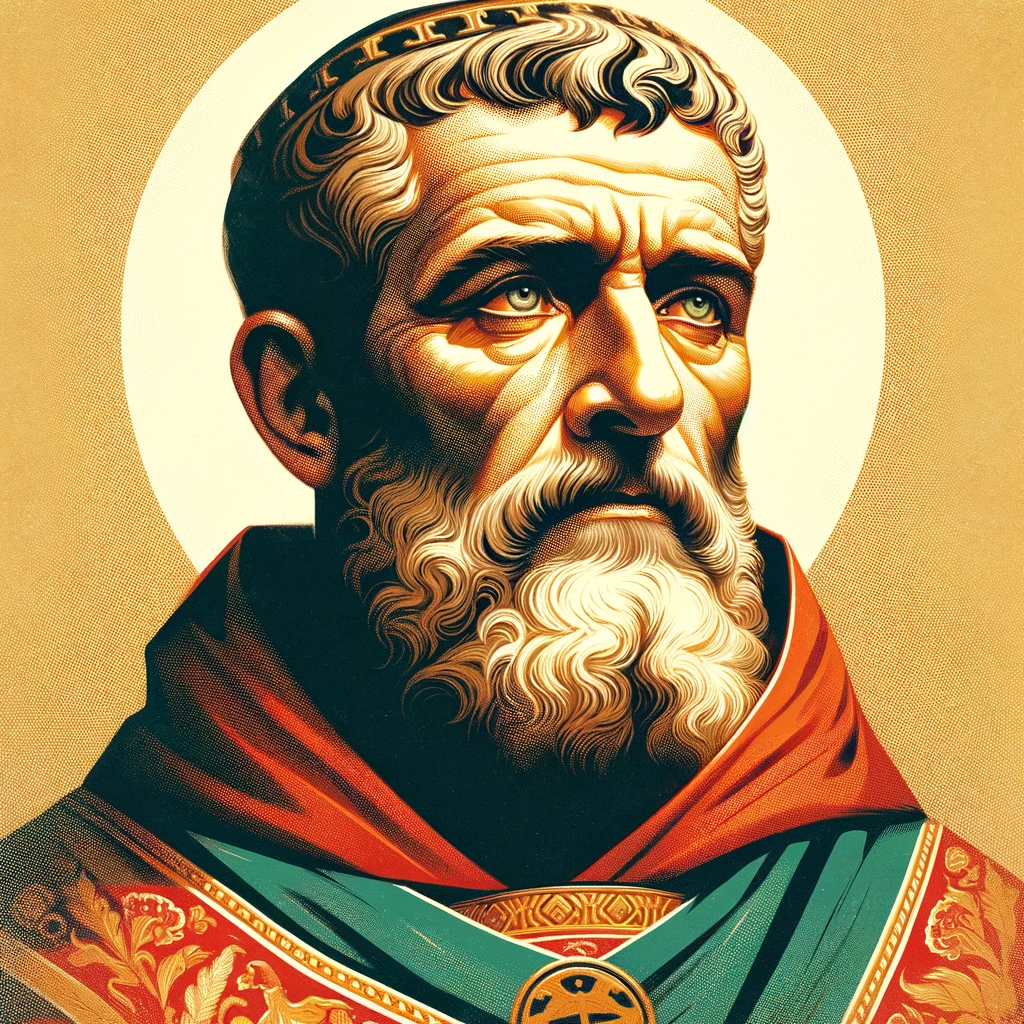
Saint Ignatius of Antioch (c. 35-107 CE): Ignatius was like the OG bishop of bishops. This guy was all about keeping the Church united and making sure the big decisions fell into the laps of bishops. But what really makes Ignatius stand out are his letters – they’re like little time capsules that give us a sneak peek into how things rolled in those early Christian communities.
Picture this: Ignatius was a bishop in Antioch, and he wasn’t your average church leader. He had this strong belief in the importance of Church unity, and he thought that the final say on matters should be with the bishops. It’s like he wanted to make sure everyone was on the same page and there wasn’t any chaos or confusion in the early Christian communities.
Now, let’s get to those letters. Ignatius wrote some pretty interesting ones while he was on his way to becoming a martyr – yeah, he was hardcore. In these letters, he talked about stuff like the roles of bishops, priests, and deacons. He even stressed the idea that the Eucharist was the “medicine of immortality” – fancy, right?
These letters are like a treasure trove of information for anyone curious about how early Christians organized themselves and what they believed. They give us a glimpse into the challenges they faced and the ideas that were bouncing around in those days.
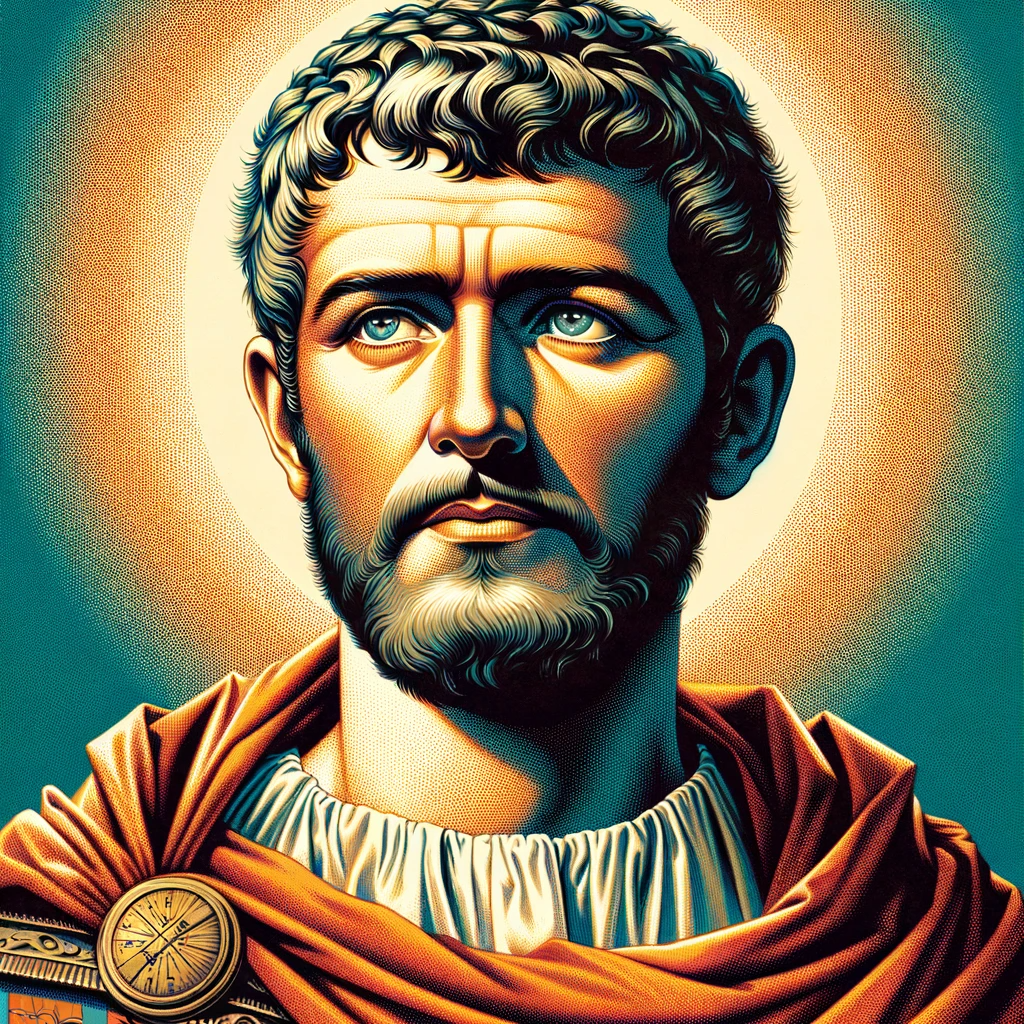
Saint Justin Martyr (c. 100-165 CE): Justin was Christianity’s spokesperson to the Roman world. The Romans back then were pretty skeptical about this newfangled Christian thing. They were like, “What’s the deal with these Christians?” Enter Justin, who stepped up to defend the faith and explain what Christianity was all about.
Justin’s writings are like a time capsule that gives us a sneak peek into the challenges early Christians faced. I mean, imagine trying to explain this whole “Jesus is the Son of God” concept to a bunch of folks who worshipped different gods and had their own set of beliefs. It was like trying to introduce smartphones in the Stone Age!
But Justin was up for the task. He wrote extensively, explaining Christian beliefs and trying to show the Romans that Christians weren’t some kind of weird cult. He wanted to bridge the gap between the Roman way of thinking and this new Christian faith that was gaining ground.
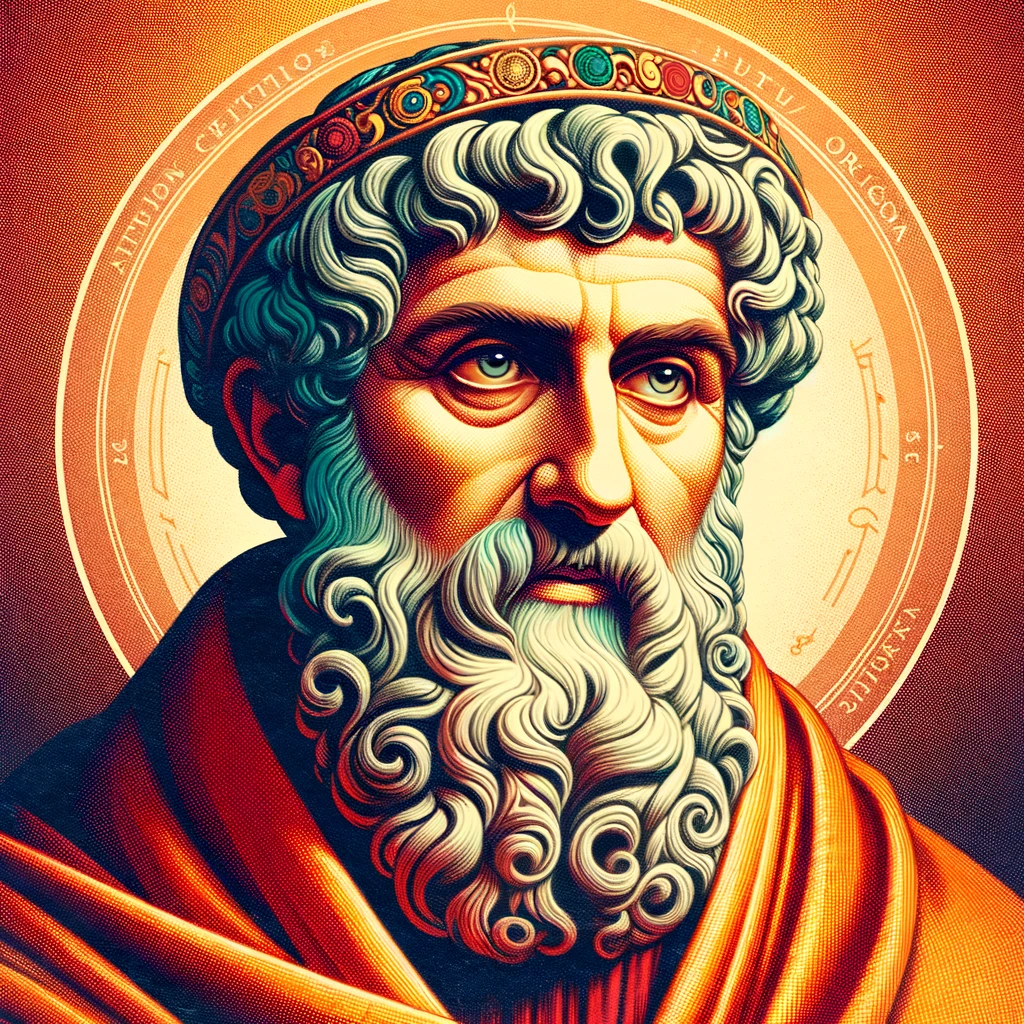
Origen of Alexandria (c. 184-253 CE): Origen was the brainiac of the bunch. This guy was a writing machine, churning out tons of stuff, and not just any stuff – we’re talking deep, intellectual stuff. He had this thing for in-depth commentaries on the Bible, and he wasn’t satisfied with just scratching the surface.
Origen was all about going deep into the rabbit hole of Christian thought. He had this knack for taking a passage from the Bible and looking at it in a way that would make your head spin. I mean, imagine reading a simple story from the Bible, and Origen would be like, “Hey, let’s see what this means in the grand scheme of things, but let’s also interpret it in the most fancy, allegorical way possible.”
It was like he had this superpower of turning every Bible story into an epic tale of hidden meanings and profound insights. You know how some people can find shapes in the clouds? Origen could find whole universes of meaning in a single Bible verse.
So, yeah, Origen was the deep thinker of the gang, always pushing the boundaries of Christian interpretation. His writings are like a treasure trove of complex ideas, and they continue to make theologians scratch their heads and go, “Whoa, that’s deep,” even today. He might not have been the guy you’d invite to a casual dinner party, but he sure knew how to make you think about Christianity in mind-bending ways!
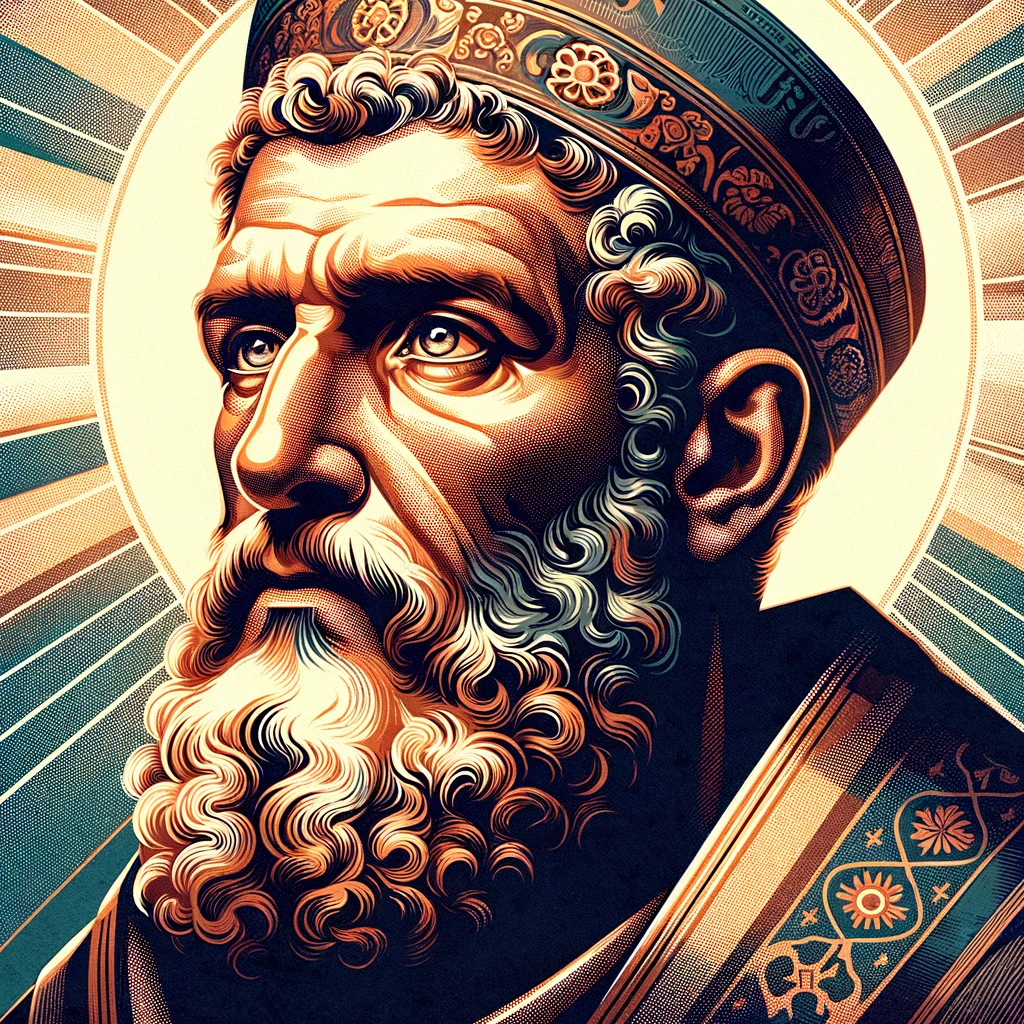
Saint Athanasius (c. 298-373 CE): Athanasius was kind of like the superhero of the Early Church Fathers when it came to the Holy Trinity. Imagine this: back in the day, there was a whole bunch of confusion and debate about the Father, the Son, and the Holy Spirit. People were scratching their heads, going, “Wait, how does this all fit together?”
Enter Athanasius. This guy was on a mission, and that mission was to make sure everyone was on the same page about the whole Trinity deal. He was like, “Alright, folks, we can’t have any of this confusion stuff.”
Athanasius was all about defending the orthodox Christian belief that the Father, the Son (that’s Jesus), and the Holy Spirit were one, in some mysterious but super important way. He didn’t want any blurred lines or mixed-up ideas about it. He was like the Trinity’s number one hype man.
His writings and arguments were like a Christian’s guide to understanding the whole Father-Son-Holy Spirit dynamic. He wanted to make sure everyone got it straight, and he wasn’t afraid to take on anyone who disagreed.
So, if you’ve ever wondered why Christians believe in this Holy Trinity thing, you can thank Athanasius for being the guy who stood up and said, “Let’s clear this up once and for all!”
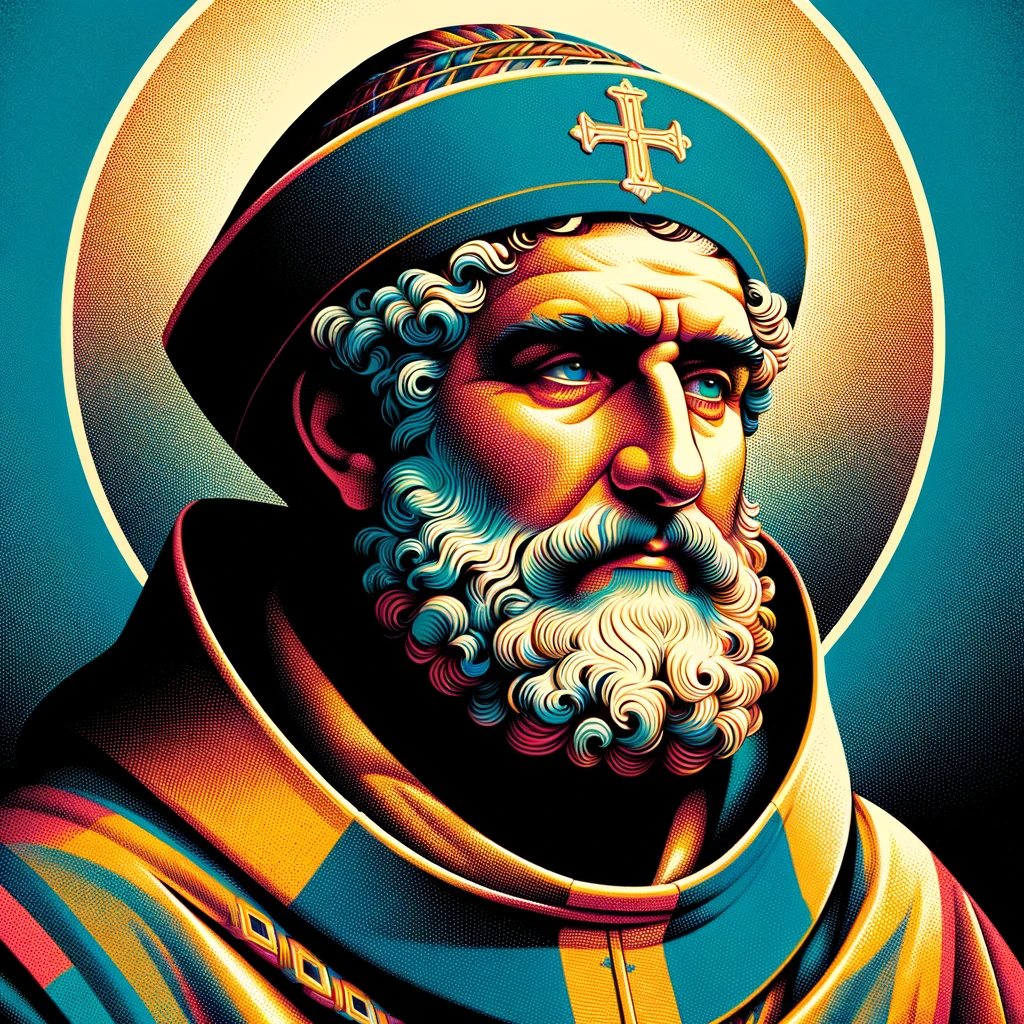
Saint Ambrose (c. 340-397 CE): Ambrose was one cool bishop, and trust me, he wasn’t your run-of-the-mill clergyman. Ambrose had this knack for turning ordinary worship services into something seriously awesome. It’s like he had this magical touch that made people go, “Wow, church is pretty cool!”
But Ambrose’s awesomeness didn’t stop there. He’s also famous for something pretty epic – he played a major role in converting Saint Augustine. Now, Augustine, he wasn’t just your average Joe; he went on to become a superstar Christian thinker. But before he became this theological heavyweight, he needed a nudge in the right direction.
And that nudge came from none other than Ambrose himself. Ambrose’s teachings and influence were so powerful that they led Augustine down the path to becoming one of the most significant figures in Christian history.
Imagine being so persuasive and inspiring that you turned someone into a theological rockstar! Ambrose was like the cool mentor who not only knew how to make Sunday service feel like a rock concert but also had the power to shape the future of Christian thought.
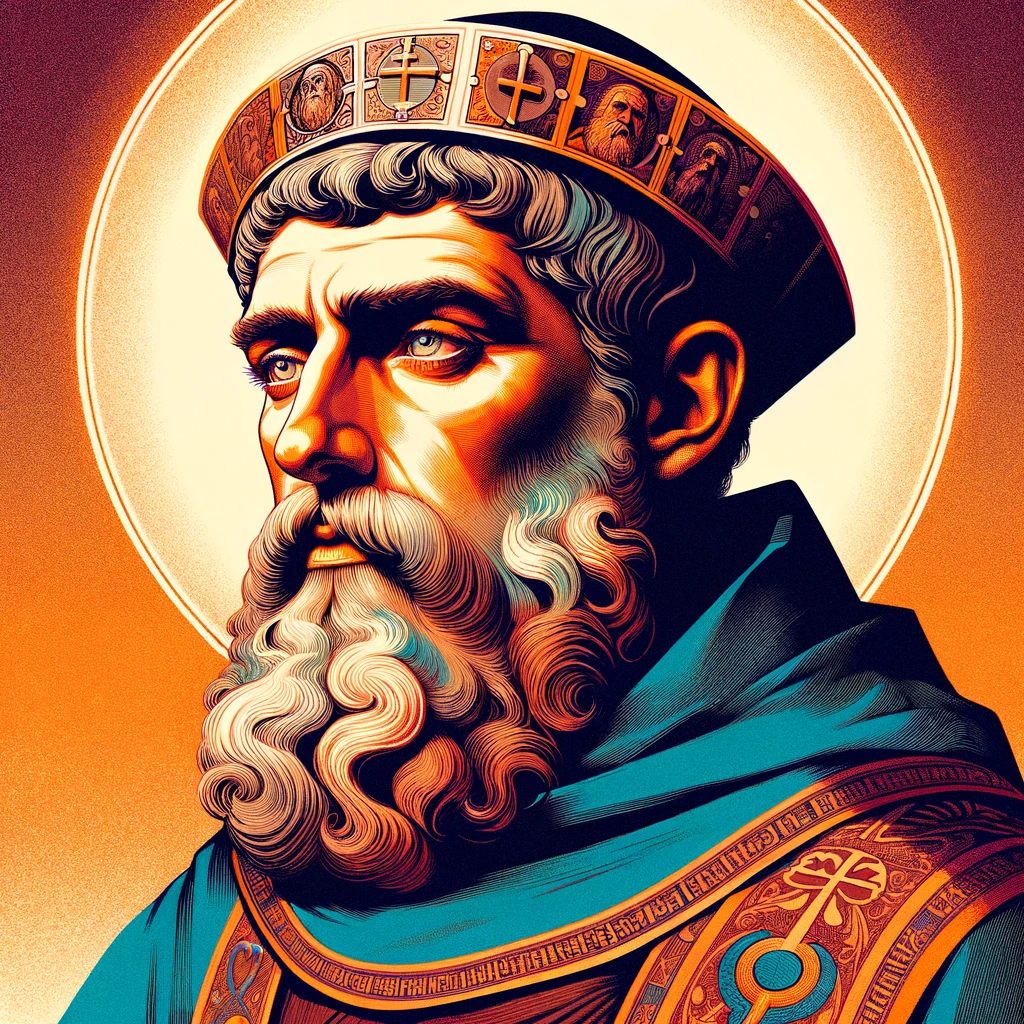
Saint Augustine of Hippo (354-430 CE): Augustine, oh boy, he’s like the Shakespeare of Christian theologians. I mean, he didn’t write love sonnets or stage plays, but his writings were the heavy hitters of Christian literature.
Augustine was all about the deep stuff. We’re talking philosophical, contemplative, and mind-bending ideas about original sin, divine grace, and everything in the spiritual realm. It’s like he took a deep dive into the ocean of Christian thought and came back with pearls of wisdom.
You know those songs that are so good they become instant classics, like the “greatest hits” of an artist’s career? Well, Augustine’s writings are pretty much the greatest hits of Christian literature. People have been reading his stuff for centuries, and it’s still blowing minds.
He had this way of making complex ideas accessible, and his words resonated with folks from all walks of life. You didn’t have to be a theology nerd to appreciate Augustine; his writings had something for everyone.
So, whether you’re into philosophy, spirituality, or just love a good intellectual adventure, Augustine’s writings are like a treasure trove waiting to be explored. He might not have penned romantic sonnets, but he sure knew how to make theology sound like poetry.
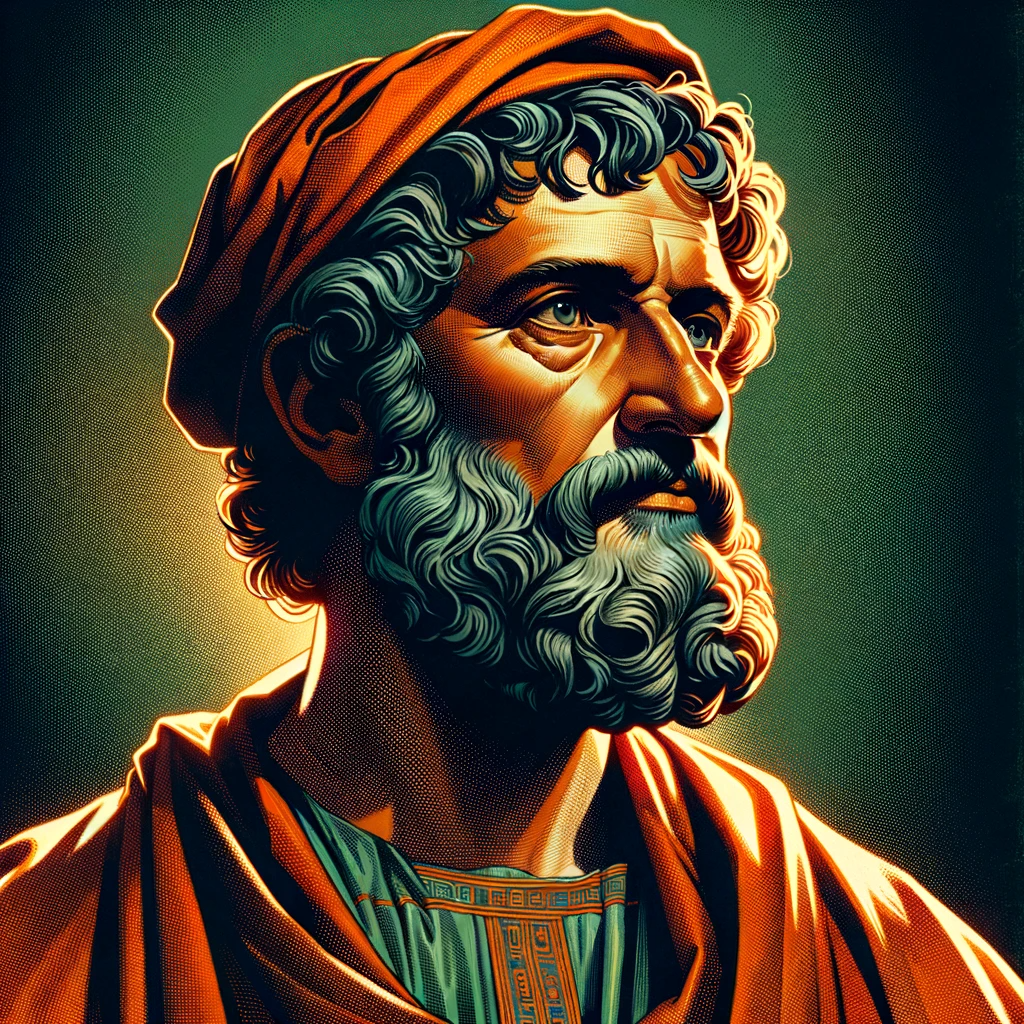
Tertullian (c. 155-240 CE): Tertullian was like the ultimate Christian debater. You know those folks who can argue their way out of anything? Well, Tertullian was one of those, but in a good way!
Imagine Tertullian’s hanging out in the early Christian scene, and he’s like, “Hey, have you heard of this Trinity thing?” Yep, he’s the one who dropped that bombshell. The whole Father, Son, and Holy Spirit trio? That’s Tertullian’s brainchild right there. He took a complex concept and gave it a snappy name.
But Tertullian wasn’t a one-hit-wonder. Oh no, this guy was a prolific writer. He wrote about everything under the Christian sun. Baptism? Check. Resurrection? You got it. His works covered pretty much every topic you could think of in the Christian world.
He wasn’t just about stirring the theological pot; he was also about shaping Christian beliefs. You see, his writings became like the building blocks of early Christian thought. People read his stuff and thought, “Yeah, that Tertullian guy makes a lot of sense.”
So, Tertullian was like the heavyweight champ of Christian debate, and his writings? Well, they were like the blueprint for Christian beliefs. If he were around today, he’d probably be the guy winning all the debates on social media.
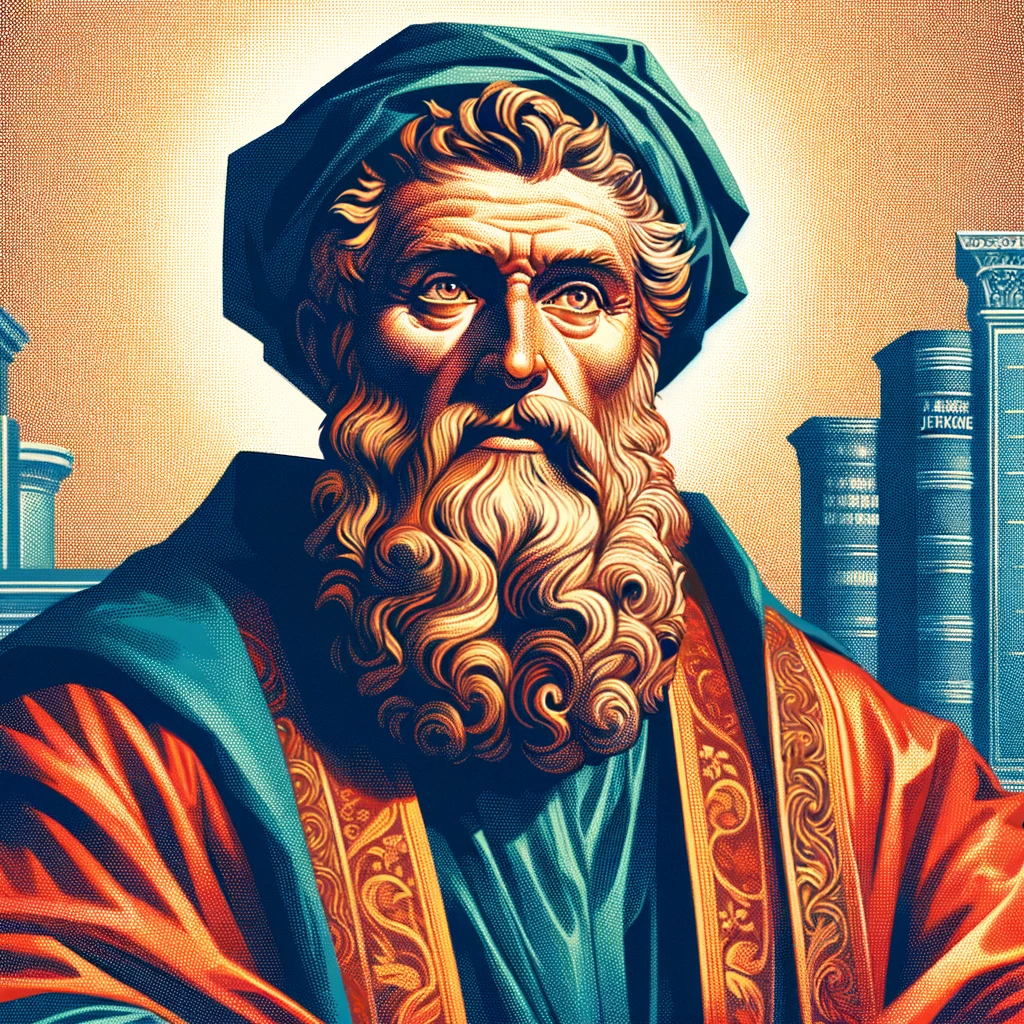
Saint Jerome (347-420 CE): Jerome was a game-changer when it came to the Bible. He was like the translator extraordinaire of his time, and he made the Bible go global in a big way.
You see, back in the day, the Bible was primarily in Greek and Hebrew, and not everyone could read those languages. Jerome was like, “Hold my parchment; I’ve got a plan.” He decided to translate the whole shebang into Latin, which was like the universal language of the Western world at the time.
This translation became known as the Vulgate, and it wasn’t just any translation; it was the translation. It became the go-to Bible for Western Christians for centuries. If you were a Christian in the Western world during all those centuries, chances are you were reading the Vulgate, and you probably didn’t even realize it.
So, here’s the deal: if you’ve ever read a Latin Bible, whether you were studying theology or just checking out an ancient text, you’ve got Jerome to thank. He made the Bible accessible to a wider audience and ensured that the message of Christianity could spread far and wide.
Jerome was like the unsung hero of biblical translation, and his work continues to be a cornerstone of Christian scholarship and practice. So, next time you crack open a Bible, take a moment to tip your hat to Jerome for making it all possible.
These Early Church Fathers, regardless of your religious beliefs, played a pivotal role in shaping the foundation of modern Christianity. They were the intellectual powerhouses, the stalwarts defending the faith, the translators, and the authors who ensured that the early Christian doctrine endured through the annals of time. While they may not enjoy the same fame as biblical figures, their contributions paved the path for a faith that has profoundly impacted lives across the globe.


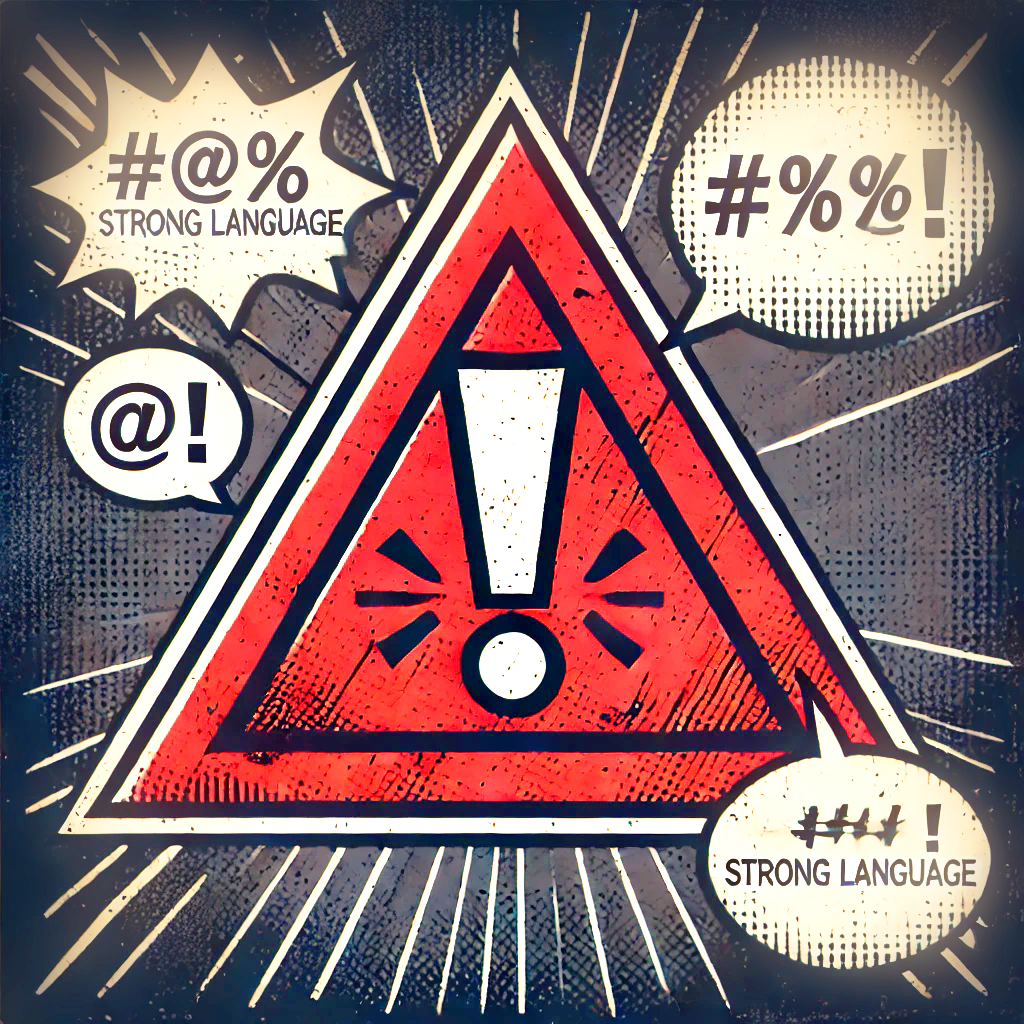
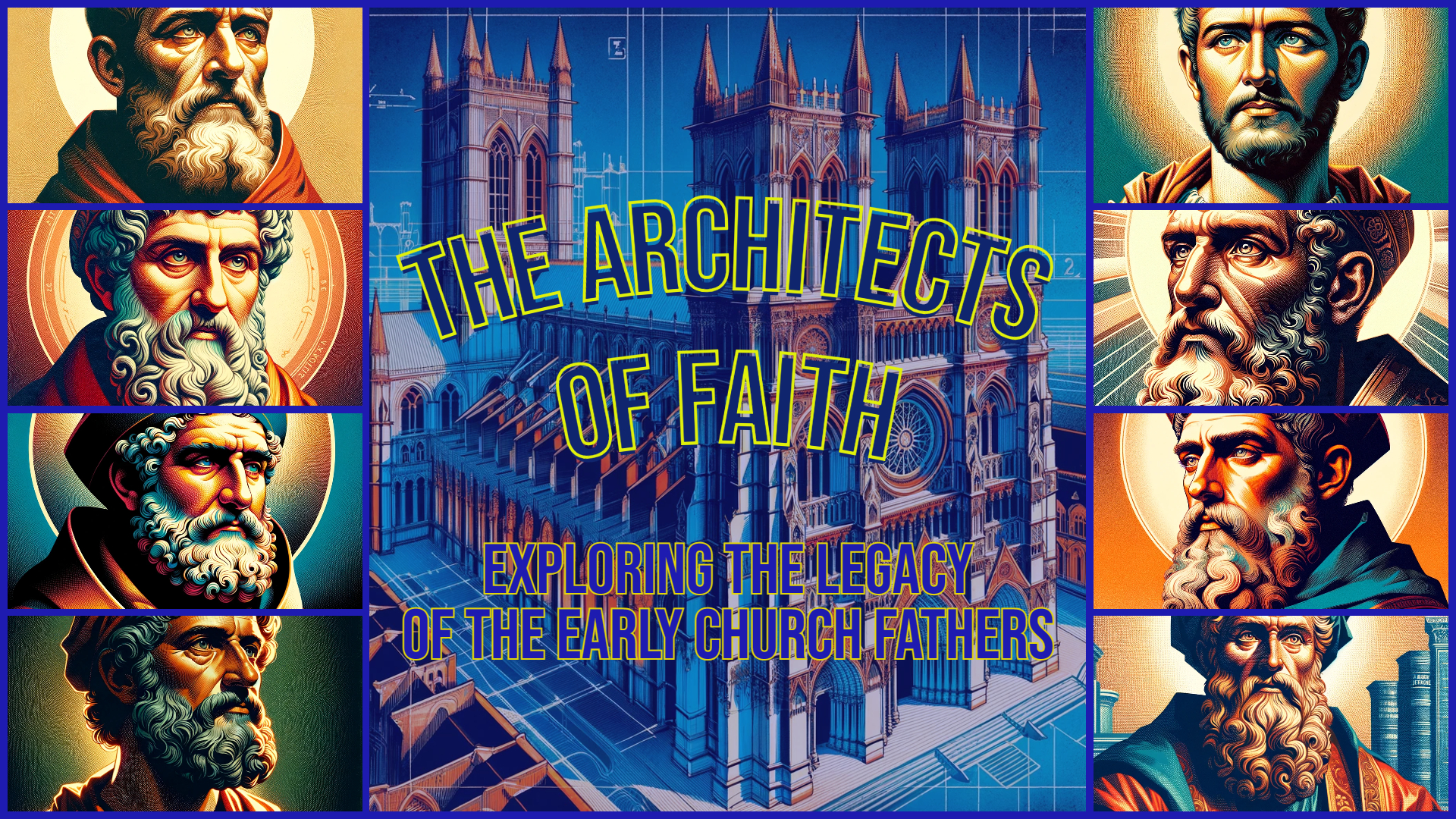
Leave a Reply